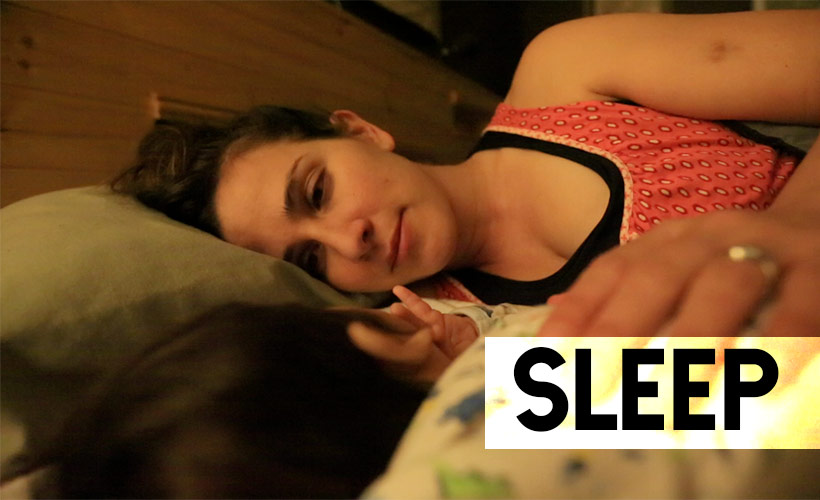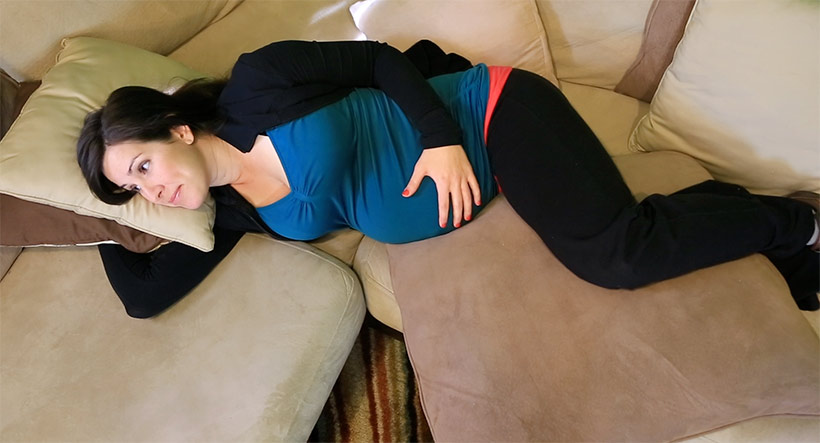What Happens to Our Brain When We Sleep?
We know that sleep is essential for good health, guaranteeing the repose that our body needs after an exhausting day. But the time we spend sleeping is also essential for the brain. Our nervous system is one of the great mysteries of science. Recent research has confirmed several theories about what happens in the brain during sleep when our conscious perception disappears.
For example, a 2019 study published in Science Magazine found that brain waves generated during sleep perform a deep cleaning in the brain. This procedure may even protect from neurodegenerative diseases, such as Alzheimer’s.
Other studies prove that the nervous system remains extremely active while you sleep. During this period, the brain performs processes that affect several organs and functions: heart, metabolism, the immune system, and even psychological functions.

Processes Performed During Sleep
A good night’s rest makes you feel better physically and mentally. This happens because of a series of processes that the brain performs during sleep. If these processes aren’t fully performed because of sleep-related disorders, serious health problems can develop.
Hormone Release
At night, hormones are released by the brain for various purposes. The most significant is melatonin, released by the pineal gland to control your sleep patterns at night. That’s why overexposure to screens, such as computers or smartphones, can impair your sleep: the blue light from these devices affects melatonin production.
While you sleep, the brain also regulates the levels of the so-called hunger hormones, decreasing the amount of ghrelin and increasing leptin production. The first is linked to appetite, and you won’t need it while sleeping; the other is responsible for that feeling of satiety after eating. This process helps to control your weight. Poor sleep unbalances these hormones, making you feel hungrier.
Also during sleep, the pituitary gland releases the so-called growth hormone (somatropin), which helps the body repair itself.
Finally, the brain releases an antidiuretic hormone called vasopressin. This turns off the need to urinate at night, allowing you to rest without getting up to go to the bathroom.
Information Processing
The brain never shuts down entirely. While you sleep, neurons reorganize and the brain’s glymphatic system flushes out toxic waste and by-products accumulated throughout the day.
This is the nervous system’s way of processing information for the day that has ended, classifying and storing data, converting short-term memories into long-term memories, and erasing unnecessary information. That is, like a computer organizing files and running antivirus and maintenance apps after you turn it off.
Feeling of Relaxation
Sleep is the only time of the day when your nervous system relaxes completely. When we are awake, and especially in situations of risk or stress, it is 100 percent active to control the so-called fight and flight reaction in the face of unexpected situations.
When sleeping, however, the need for this reaction is disabled. That’s why those unable to sleep or sleep less can be easily agitated—the nervous system’s activity increases and may even cause blood pressure problems.
Strengthening of the Immune System
The release of proteins called cytokines occurs during sleep. This substance strengthens our immune system, helping the body fight inflammation, infections, and injuries in general.
That is why, in cases of colds, doctors often recommend “vitamin C and bed”—sleep helps the body self-regenerate quicker. In COVID-19 times, maintaining a strengthened immune system is essential.
How Many Hours of Sleep Does Our Body Need?
If you don’t get enough sleep, your body won’t reach its potential the next day. The most common symptoms of a bad night’s sleep are psychological: bad mood, stress, difficulty concentrating, etc. It can even be dangerous if the person has a job that requires concentration (a driver, for example).
Each person has particular needs, but there’s a minimum amount of sleep that our bodies need each night, which is usually determined by age group. Recently, the Centers for Disease Control and Prevention (CDC) suggested the following daily durations, based on different scientific studies:
- From birth to 3 months: 14 to 17 hours
- 4 to 12 months: 12 to 16 hours, including naps
- 1 to 2 years: 11 to 14 hours, including naps
- 3 to 5 years: 10 to 13 hours, including naps
- 6 to 12 years: 9 to 12 hours
- 13 to 18 years: 8 to 10 hours
- 18 to 60 years: 7 or more hours
- 61 to 64 years: 7 to 9 hours
- 65 years and above: 7 to 8 hours
6 Steps to a Good Rest
If you are having trouble sleeping, here are some steps that can help improve your rest and strengthen your immune system in the current global pandemic:
Set a Time Schedule and Follow It
Even if you are spending the day at home, have scheduled times to wake up, get out of bed, complete tasks, and finally go back to bed at night. Spending the afternoon in bed, taking naps late in the day, sleeping in late, and spending more time in bed in the morning can mess up the body’s natural schedule, and it will not be able to shut down naturally when night comes.
Practice Light Exercises
Some recommend meditative movements like tai chi and yoga to help you sleep. But light exercise an hour before going to bed also contributes to a good rest. Obviously, you won’t be working out hard at night—a few minutes of low-impact exercises, such as planks or stretches, are enough.
Avoid Overeating at Night
Eating late is one of the leading causes of poor sleep quality. Lying stuffed in bed causes a feeling of discomfort rather than relaxation. As a rule, avoid any heavy meals at night, or you will be making your digestive system work twice when it would naturally be reducing activity.
Go to bed three and four hours after dinner to ensure proper digestion. At this time, avoid substances like nicotine, alcohol, and especially caffeine because of their stimulating effects.
Relax Before Bedtime
Avoid lying in bed thinking about the problems of the past day. A pre-sleep routine that helps you relax is essential to achieve deep sleep.
There are various relaxation and stress control techniques to try. Start simple with a relaxing massage just before bedtime, a hot bath, or just adopt relaxing habits, like listening to calm music or reading a book in bed to keep your mind busy.
Improve the Bedroom Layout
A very messy bedroom with exaggerated decor or walls painted in bright colors can affect your sleep, leaving you excited instead of relaxed.
Try to adapt your bedroom layout to make it more inviting to rest. Avoid excessive bright lights and loud sounds, keep the room at a comfortable temperature, and avoid having a TV or computer next to your bed.
Change Your Mattress
Having a good and comfortable mattress is essential for a relaxed sleep. As a rule, mattresses usually last five to 10 years. But you can change it sooner if you are waking up sore or the mattress looks poorly maintained.
There are various mattresses on the market, but we can summarize them in the three most common types: innerspring, foam, and adjustable. The choice will depend on how you sleep (which will determine its firmness) and your bed and room size.
If in doubt, read reviews to find out which products are most suitable. Also, don’t forget to buy a mattress protector to avoid dust, allergens, and stains in your brand new mattress.

Sleep Well and Let the Brain Work
When you sleep after a tiresome day, your work shift is over. However, for your brain, the work never ends as the nervous system performs essential maintenance and repair work while we sleep.
Therefore, sleeping well is vital to maintaining physical and mental health. It keeps your body healthy and functioning like clockwork. If you cannot sleep or rest long enough, you may experience side effects such as mood swings, poor memory, difficulty concentrating, and even weakened immunity.
If the steps above don’t solve your sleeping problems, talk to a doctor or sleep specialist. Your brain needs this daily period to take care of your physical or mental health, and skipping this step can bring severe problems in the future.
Learn more
Check out this video on the science of sleep as a new parent that we did a few years ago.
































































































